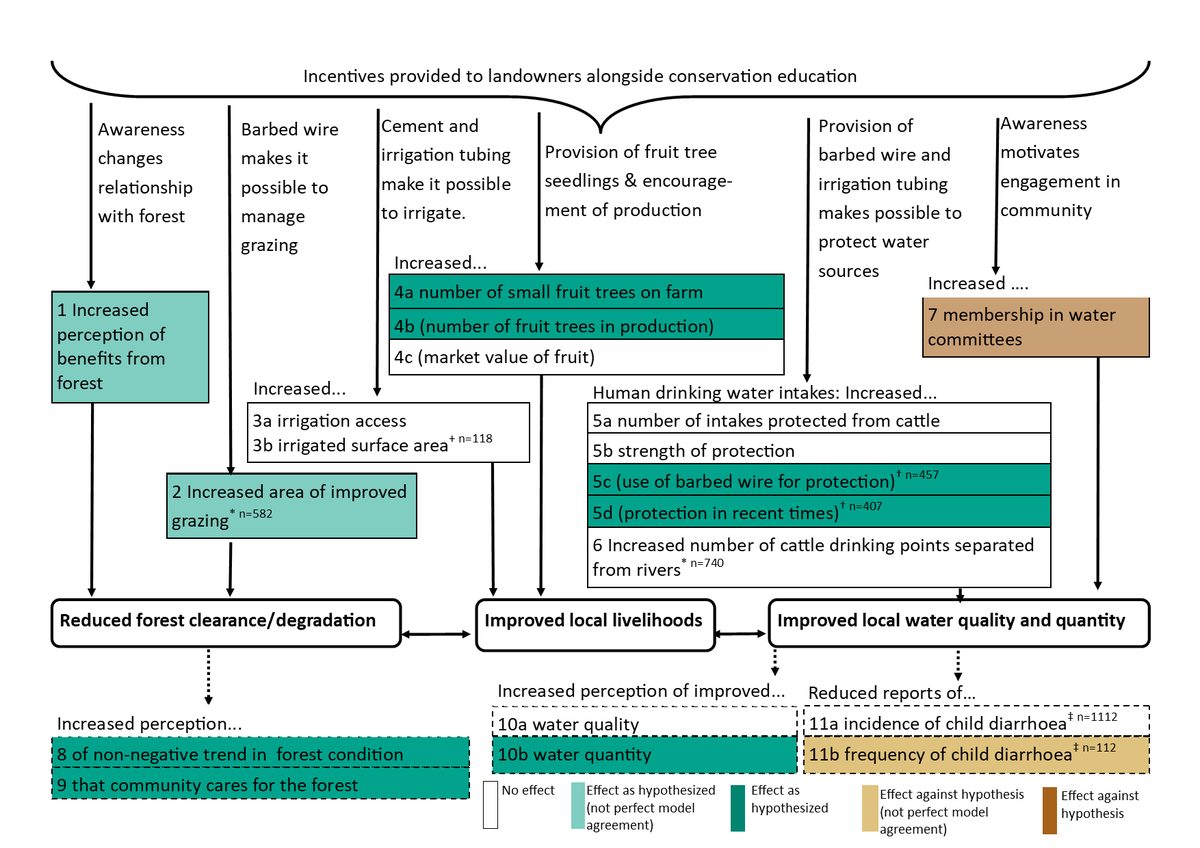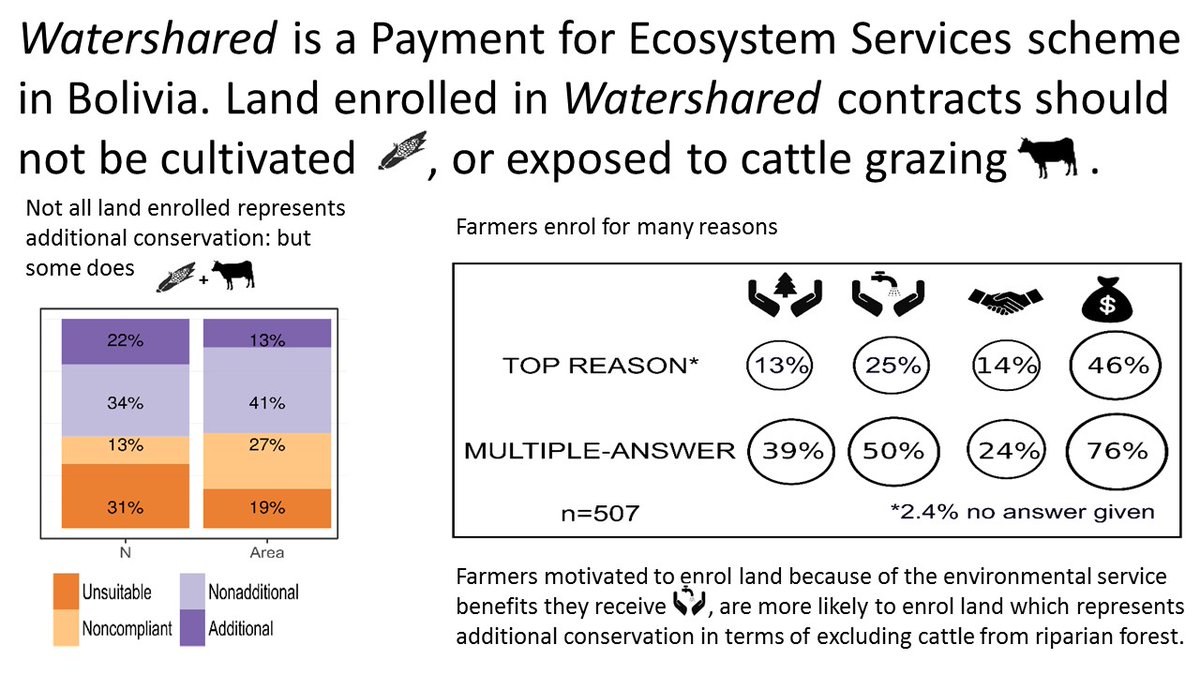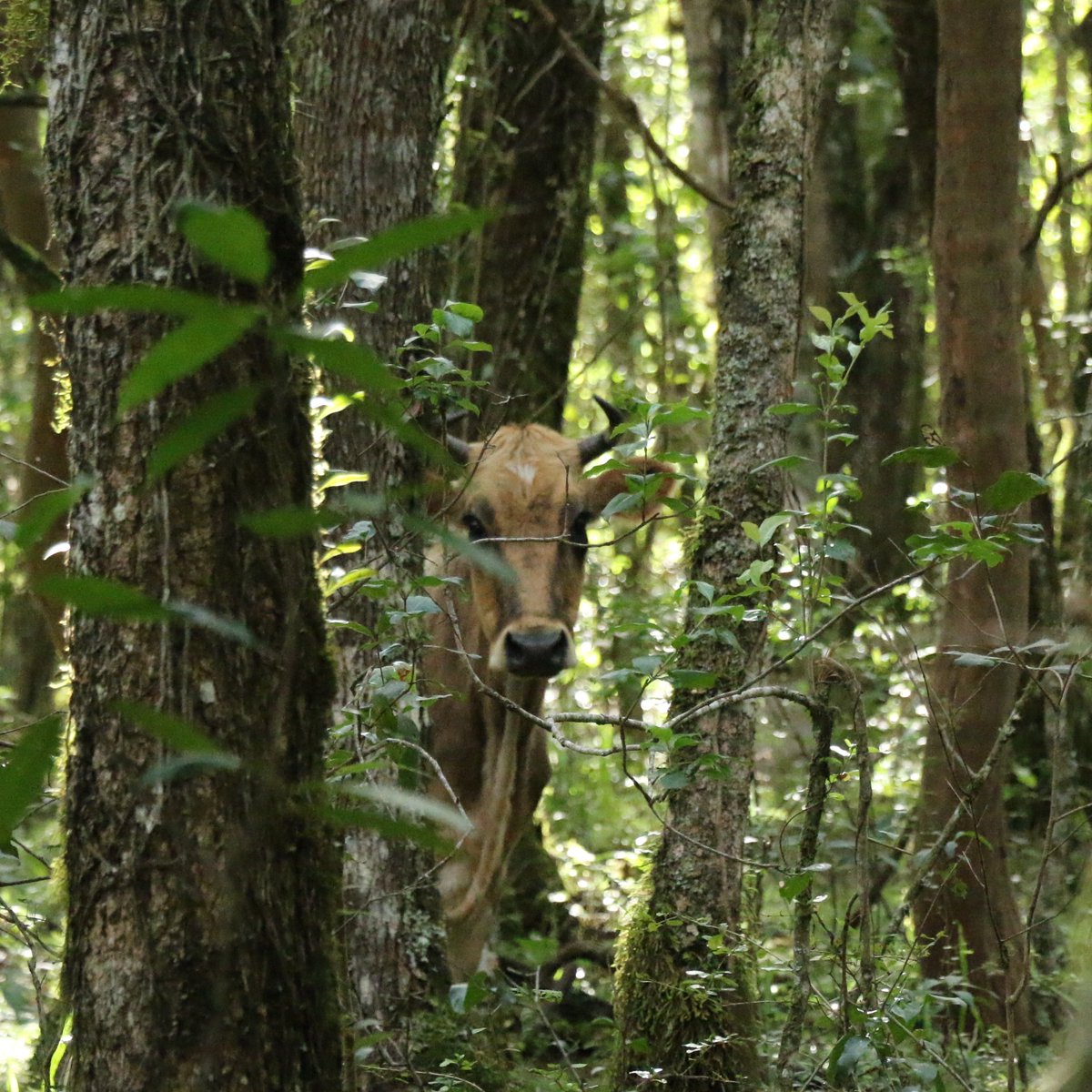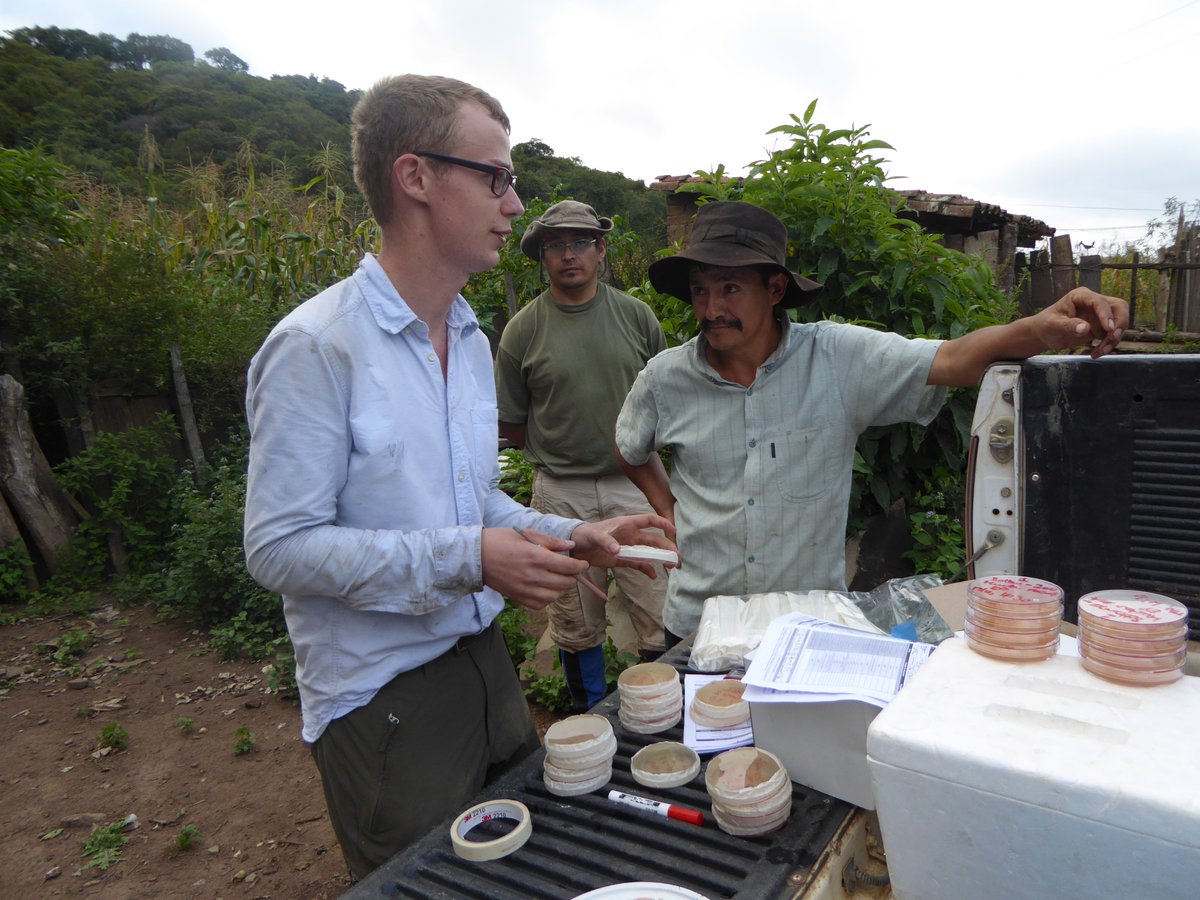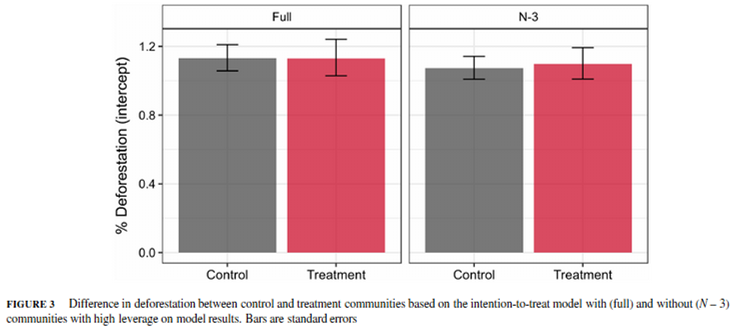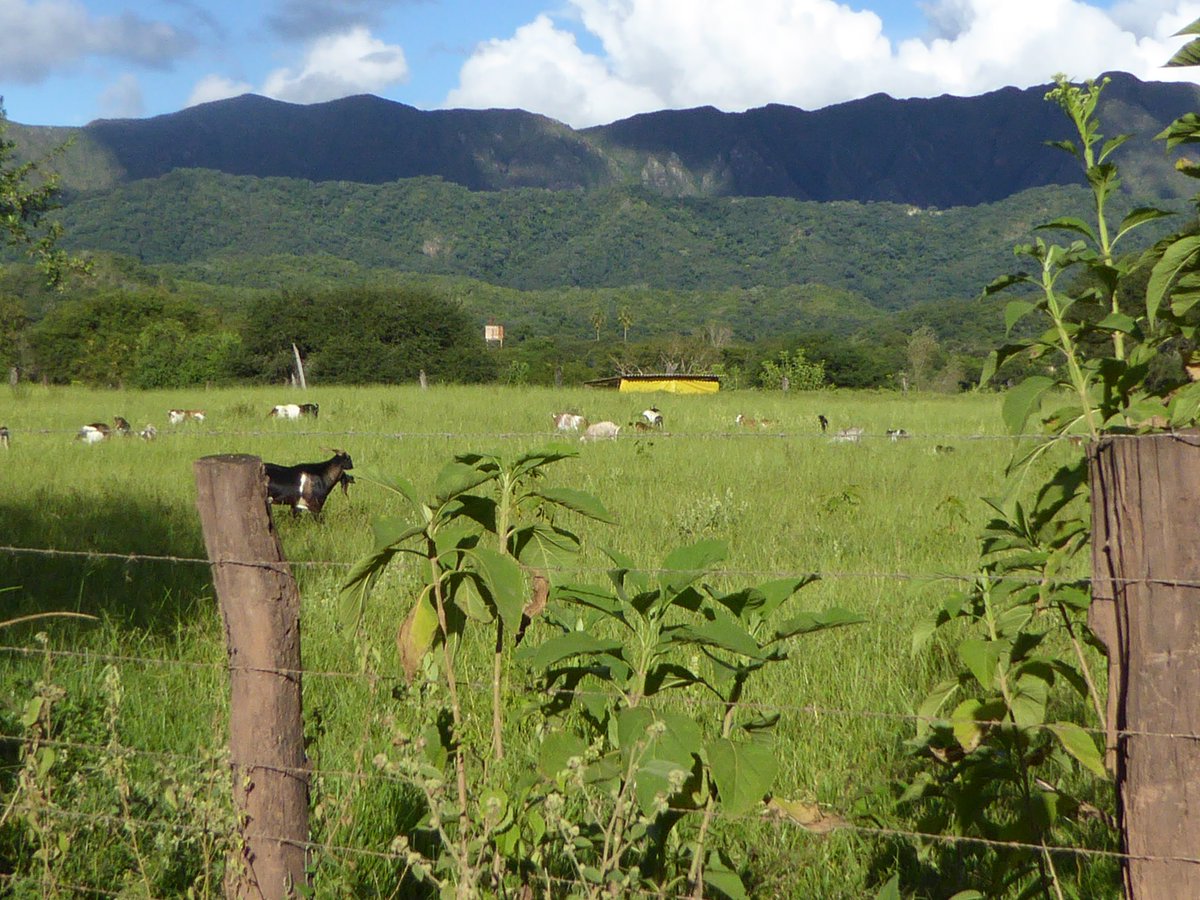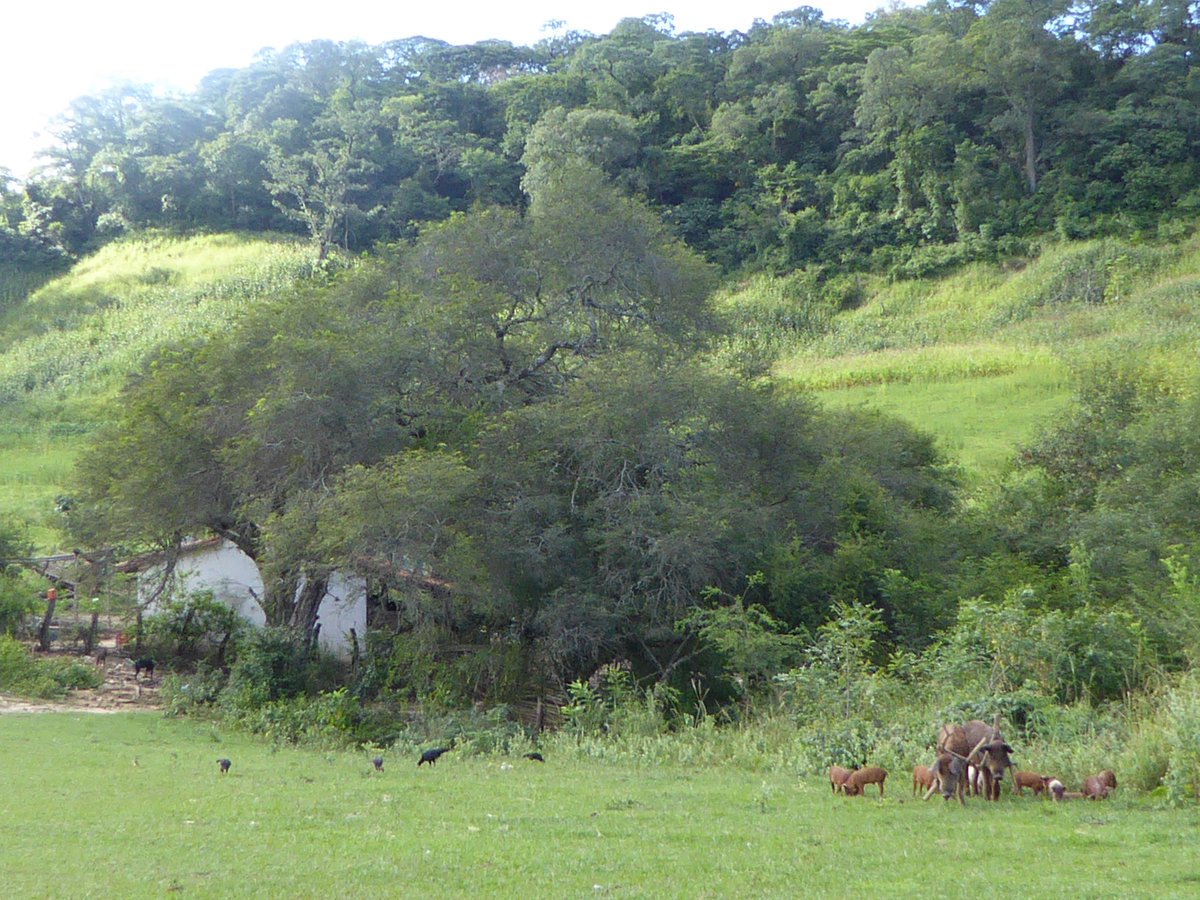Can a Randomized Control Trial tell you about the mechanisms by which a conservation intervention works, or does not work? Our new paper (based on an RCT evaluating the 'WaterShared' incentive-based conservation scheme in Bolivia) explores…. (1/14)
https://conbio.onlinelibrary.wiley.com/doi/full/10.1111/cobi.13508
https://conbio.onlinelibrary.wiley.com/doi/full/10.1111/cobi.13508
The use of RCTs (especially the tendency of some funders to consider RCTs the only source of valid evidence) has resulted in a bit of an acrimonious debate on their use. I’ll just point to this excellent special issue of @WorldDevJournal (2/14)
https://www.sciencedirect.com/journal/world-development/vol/127/suppl/C
https://www.sciencedirect.com/journal/world-development/vol/127/suppl/C
One (of many) criticisms of RCTs is they don’t given insights into WHY an intervention works (or doesn't). However by evaluating intermediate outcomes across the whole theory of change, we get insights into mechanisms (3/14) https://conbio.onlinelibrary.wiley.com/doi/full/10.1111/cobi.13508
We published this as a Registered Report (the 1st in @consbio I think). The intro & methods were reviewed before we did analysis; this avoids the bias against negative results, temptation to cherry pick, & HARKing (see this great editorial) 4/14
https://conbio.onlinelibrary.wiley.com/doi/10.1111/cobi.13342
https://conbio.onlinelibrary.wiley.com/doi/10.1111/cobi.13342
The WaterShared scheme incentivizes upstream farmers to keep cattle out of streams & not deforest. The aim is to improve water quality & quantity in the dry season & slow deforestation. Read more about additionality & motivations here… 4/14
https://www.sciencedirect.com/science/article/pii/S0921800917315136
https://www.sciencedirect.com/science/article/pii/S0921800917315136
In 2010 Natura Bolivia took the REALLY unusual step of randomizing rollout in a new area. 128 communities were randomly allocated to be offered incentives or not. We’ve already used this experiment to evaluate impact on: water quality, deforestation, enviro. values..... 5/14
Water quality: While keeping cattle out of rivers improved water quality locally, there was no detectable impact of the intervention (offering WaterShared incentives) on water quality consumed by people. 6/14
https://peerj.com/articles/5753.pdf
https://peerj.com/articles/5753.pdf
Deforestation: The main finding (from the intention-to-treat model) was that WaterShared did not slow deforestation over its first 5 years 7/14
https://conbio.onlinelibrary.wiley.com/doi/full/10.1111/csp2.8
https://conbio.onlinelibrary.wiley.com/doi/full/10.1111/csp2.8
Environmental values: The RCT provided robust evidence that the intervention had increased prioritization of environmental values. ie The scheme did not result in ‘crowding out’ of such values (as is sometimes seen in PES schemes) but ‘crowding in’. 8/14 https://www.sciencedirect.com/science/article/pii/S0921800919300254
Our new paper looks at a whole range of self-reported outcomes (such as changes in farming) to explore what was & wasn’t changing after 5 years which might be expected to result in impacts longer term. The story is quite complex but informative 9/14
https://conbio.onlinelibrary.wiley.com/doi/full/10.1111/cobi.13508
https://conbio.onlinelibrary.wiley.com/doi/full/10.1111/cobi.13508
My main take-home is on the value of Registered Reports. Could we have published such a messy story if it wasn’t a Reg. Report? Either the study wouldn’t have been published (adding to publication bias), OR we’d have had to simplify it by cherry picking outcomes to discuss 10/14
I was super-honoured to talk about this work at the Ben Collen memorial lecture @UCLCBER in March. You can watch here for my perspective on value of experiments (and pre-analysis plans) in conservation 11/14
Natura Bolivia deserve HUGE credit for setting up WaterShared as an RCT driven by their desire to really know their effectiveness. They applied all the lessons from the research to make WaterShared stronger & are a truly evidence-based organisation 12/14
http://www.naturabolivia.org/es/inicio/
http://www.naturabolivia.org/es/inicio/
Thanks to @EdwinPynegar @Emma_Wiik @TaraGrillos who led the papers in this thread & all co-authors: Nigel Asquith, David Crespo, @Pbottazzi, Andreas Kontoleon, Remi d'Annunzio. Thanks to everyone at Natura especially Maria Teresa Vargas & Tito Vidaurre. Funded by @LeverhulmeTrust

 Read on Twitter
Read on Twitter
